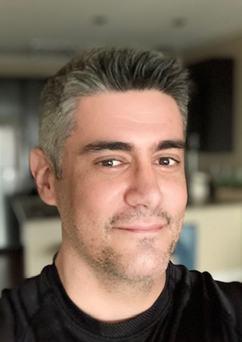January 25-29, 2025
San Diego Convention Center
San Diego, CA, USA


January 25-29, 2025
San Diego Convention Center
San Diego, CA, USA
An emerging body of evidence has supported the usefulness of microphysiological systems (MPS) to study physiology, disease pathogenesis and pharmacology. However, the application of MPS to predict absorption, distribution, metabolism and excretion (ADME) properties is still at its infancy. Therefore, there is an untapped potential for MPS integration with physiologically-based pharmacokinetics (PBPK) modeling to support early stages of drug development and waive part of the required clinical trials (e.g., for the assessment of metabolic- or transporter-mediated drug-drug interaction).
Currently, in vitro to in vivo extrapolation of ADME properties at early stages of development is based on traditional 2D in vitro models. Therefore, it faces all the inherent limitations related to 2D cell-based systems. For example, misprediction of metabolic clearance is rather common and negatively impacts development programs.
In vitro parameters are translated using physiologically-based pharmacokinetics (PBPK) modeling. The key parameters required to build a reliable PBPK model for a drug include, a good system model, the determination of ADME characteristics for the drug: absorption kinetics (rate and extent), distribution parameters (organ partitioning and perfusion vs. permeability limitations), metabolism (in drug eliminating organs such as the liver) and excretion (by the kidneys and into the bile). Microphysiological systems hold unique promise in providing a refined tool to establish these parameters that form the foundation of PBPK model development and DDI predictions. In this course, we will discuss the potential benefits of MPS in providing critical ADME values for PBPK model development.

Rodrigo Cristofoletti, Ph.D.
University of Florida
Rodrigo Cristofoletti, Ph.D., is an Assistant Professor at the University of Florida (UF), Department of Pharmaceutics and the Associate Director of the Center for Pharmacometrics and Systems Pharmacology at the UF. Before joining the Gator Nation, he served as a regulator in the Biopharmaceutics & Clinical Pharmacology Office of the Brazilian Health Regulatory Agency (Anvisa) for 15 years. He received his B.S. in Pharmaceutical Sciences from the University of Sao Paulo, Brazil in 2004 and received his Ph.D. summa cum laude from the Johann Wolfgang Goethe University, Frankfurt am Main, Germany in 2017. Cristofoletti is Associate Editor of Frontiers in Pharmacology (Drug transport and metabolism) and member of the Editorial Boards of the AAPS J, Journal of Personalized Medicine, Journal of Pharmacy & Pharmacology and Biopharmaceutics & Drug Disposition. He also serves as a grant reviewer at the NIH - Advancing Therapeutics study section (MCST-M 81), NIH Drug and Biologic Disposition and Toxicity (DBDT) study section, Maryland Industrial Partnerships Program and Austrian Science Fund (FWF). Cristofoletti’s lab focuses on translational DMPK-Tox and Microphysiological Systems to support the development of humanized in vitro models to replace/reduce the use of animals in research. His research interests are integrating in vitro and in silico models (like physiologically-based models and quantitative systems pharmacology models) to support translational research at early stages of drug development. Cristofoletti’s lab is also interested in developing organotypic models and microphysiological systems to model ADME-Tox in special populations not well represented in clinical trials for new wide-use drugs (e.g., Down Syndrome, Cystic Fibrosis, Allan-Herndon-Dudley Syndrome patients and others). His lab is also working on the development of novel humanized in vitro disease models, leveraging stem cell technology, microfluidics and 3D bioprinting to investigate inflammatory and genetic diseases affecting physiological barriers (e.g., intestinal epithelium, lung epithelium and blood-brain barrier) and leading to cognition impairment (e.g., Down Syndrome, Alzheimer’s disease and other neurodegenerative diseases).

Janny Pineiro-Llanes, Ph.D.
University of Florida
Janny Pineiro-Llanes, Ph.D. is a Senior Postdoctoral Associate at the Center for Pharmacometrics and Systems Pharmacology at the University of Florida (UF) where she earned her Ph.D. in Biomedical Engineering from UF in 2022. Her research focuses on developing, optimizing and validating biomimetic in vitro platforms to better understand the complex dynamic environment of biological systems aiming to address current clinical challenges. Pineiro-Llanes’ research approach integrates physiologically relevant in vitro models fabricated using microfluidics and 3D-bioprinting techniques with quantitative systems pharmacology in silico models to enhance translational research in early-stage drug development. Her work involves validating microphysiological systems (MPS) and organotypic models for in vitro testing of pharmacological compounds to model absorption, distribution, metabolism, excretion and toxicity (ADME-Tox) in populations underrepresented in clinical trials. She is particularly interested in exploring the contribution of the extracellular matrix (ECM) to patient variability in disease development and progression, especially for genetic and rare diseases such as Cystic Fibrosis, Barth Syndrome and Down Syndrome. Her research approach to developing humanized in vitro models supports the efforts to reduce animal use in research. Pineiro-Llanes promotes interdisciplinary research and innovation by bridging knowledge across fields for process optimization. Her collaborations with glycobiologists, computational modelers and mechanical engineers examine the ECM's impact on mitochondrial function and physiological barriers, tissue composition on glycosylated molecule transport, as well as develop label-free methods for characterizing soft tissue. Beyond her research, Pineiro-Llanes has actively promoted interdisciplinary research through her contribution to professionals, like serving as Director of Research and Fellowships in the local chapter of the Society of Hispanic Professional Engineers (SHPE) and her role as a reviewer for scientific journals. Committed to education and mentorship, she assists in teaching undergraduate courses at UF such as Mechanics of Materials, Bio-solids Mechanics and Cellular Engineering Laboratory and mathematics classes at Santa Fe College. She has mentored multicultural and non-traditional students in the Florida TRIO program to foster future scientists and engineers..